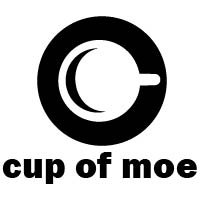We may earn money or products from the companies mentioned in this post.
When legendary director Stanley Kubrick’s name arises, we typically remember his more lavish films: “2001: A Space Odyssey,” “The Shining,” “A Clockwork Orange,” “Full Metal Jacket.” A prolific director, his worst movies arguably deserve recognition in the film canon. “Dr. Strangelove” is one of Kubrick’s more grounded flicks, though often the kooky black comedy flies under the radar, overshadowed by his visually-stunning pieces. With its relevant political statement, phenomenal acting, and overabundant details, “Dr. Strangelove” deserves a viewing, whether a refresher or virgin voyage.
A brief informational segment opens the film, setting the stage for a political satire. The introduction mocks Cold War era videos, a theme of the entire film. Action then jumps to Burpleson Air Force Base, where Brigadier General Jack D. Ripper (Sterling Hayden) issues “Plan R,” ordering the 843rd Bombers to attack Russia. The command may only be revoked through the CRM 114 Discriminator communication module. Ripper proceeds to place the base under quarantine and charges his troops to fire upon anyone attempting to gain entrance to Burpleson Air Force Base.
Soon after closing off Burpleson, Ripper locks himself and Group Captain Lionel Mandrake (Peter Sellers), in his office he divulges his inspiration for issuing the command to strike Russia. The clearly unhinged Ripper believes that the Russians are contaminating US water through fluoride. He explains that he only consumes fresh distilled or bottled water. Meanwhile, General Buck Turgidson (George C. Scott) alerts President Merkin Muffley (Peter Sellers) who assembles a meeting in the Pentagon’s fictitious War Room. Among the present members is Dr. Strangelove (Peter Sellers), an ex-Nazi nuclear specialist, and Soviet Ambassador Alexei de Sadeski (Peter Bull). As they scramble to broadcast the recall code for Plan R, Major T.J. “King” Kong (Slim Pickens) and company aboard their B-52 bomber race to drop a nuke on their assigned targets.
The wacky plot lampoons the Cold War mentality of total annihilation and highlights the ridiculousness of such barbarianism. In the aftermath of Plan R’s implementation, the War Room party discusses possible options in a seemingly plausible, though an exaggerated version of what may occur in Congress today. Gen. Turgidson explains to a distraught President Muffley that Plan R may only be rescinded through a unique code. Naturally, Gen. Ripper has the only copy. When Muffley wonders aloud how such an attack plan could be launched without consulting the President, Turgidson notes that President Muffley offered his approval. Similarly, the current political scene seems littered with acts passed without reading the fine print.
Details throughout “Dr. Strangelove” further illustrate and reinforce the socio-political message while crafting Kubrick’s zany humor. Burpleson Air Force Base features an enormous billboard claiming “Peace is Our Profession.” There’s ample irony in the phrase alone, but when coupled with Ripper’s forces firing upon their own US Army allies, it increases exponentially. Arguably the most hysterical scene in the entire film finds Mandrake attempting to phone the President on a pay phone. Lacking sufficient funds, he chats with the operator while persuading the officer guarding him to reluctantly shoot open a Coca-Cola machine. The soldier warns Mandrake of possible repercussions from the Coke Company. Interestingly, we live in an age where corporations are sometimes more threatening than governments.
Acting solidifies an already masterpiece flick. Peter Sellers lends his talents to portray three characters: Mandrake, President Muffley, and Dr. Strangelove. The former Nazi nuclear expert, Strangelove, has a hand which appears to act of its own volition. During the final moments of the film, Strangelove restrains the gloved hand as it attempts to throw up the Nazi salute. Sellers is almost unrecognizable in the three roles, an impressive feat for Kubrick and company. As Muffley, he placates the Soviet premier, Dimitri Kisov, constantly reassuring Dimitri that he does indeed enjoy their chats. This appeasement is not unlike the politicians of today. Continuing this trend, Turgidson captures the caricature of hard-nosed military types, fighting with the Russian ambassador and suggesting that the US follow through with the bomb drops. Turgidson speaks in hushed tones with his mistress, Miss Scott (Tracy Reed), on the War Room phone. Clearly, the Rob Fords of the world are all too common. Slim Pickens’ portrayal of Major T.J. King Kong, however, may be the highlight of the entire movie. The cowboy hat wearing pilot drawls on in a Southern accent and drops phrases only Pickens could pull off. “Shoot, a fella could have a pretty good weekend in Vegas…” he remarks after reading the contents of the survival packages which include condoms, lipstick and nylon stockings. The iconic scene of Maj. Kong hollering as he rides the nuke to earth is truly fantastic. Let’s be honest, we’d all follow suit if that were our last hoorah.
It’s difficult to incite earnest, laugh-out-loud humor while offering a through-provoking message, but Kubrick delivers wonderfully. Considering the sheer brilliance of the movie, “Dr. Strangelove” is nearly flawless. The only true downside to the movie is actually the big-screen effect. A large viewing area really accentuates the cheesy graphics. Don’t expect a “Gravity” experience during flight sequences. These scenes are obviously model planes, and only a step above “Plan 9 From Outer Space.” That being said, “Dr. Strangelove” is entirely about the message, and mind-boggling visuals aren’t necessary. A strong cast hammed up yet poignant performances, and relevant messages regarding foreign affairs, war and politics make this timeless classic well-deserving of multiple viewings and more than compensate for antiquated special effects.
This post may contain affiliate links. We are a participant in affiliate programs such as the Amazon Services LLC Associates Program, an affiliate advertising program designed to provide a means for us to earn fees by linking to Amazon.com and affiliated sites. However, all products are thoroughly tested and reviews are honest and unbiased.

